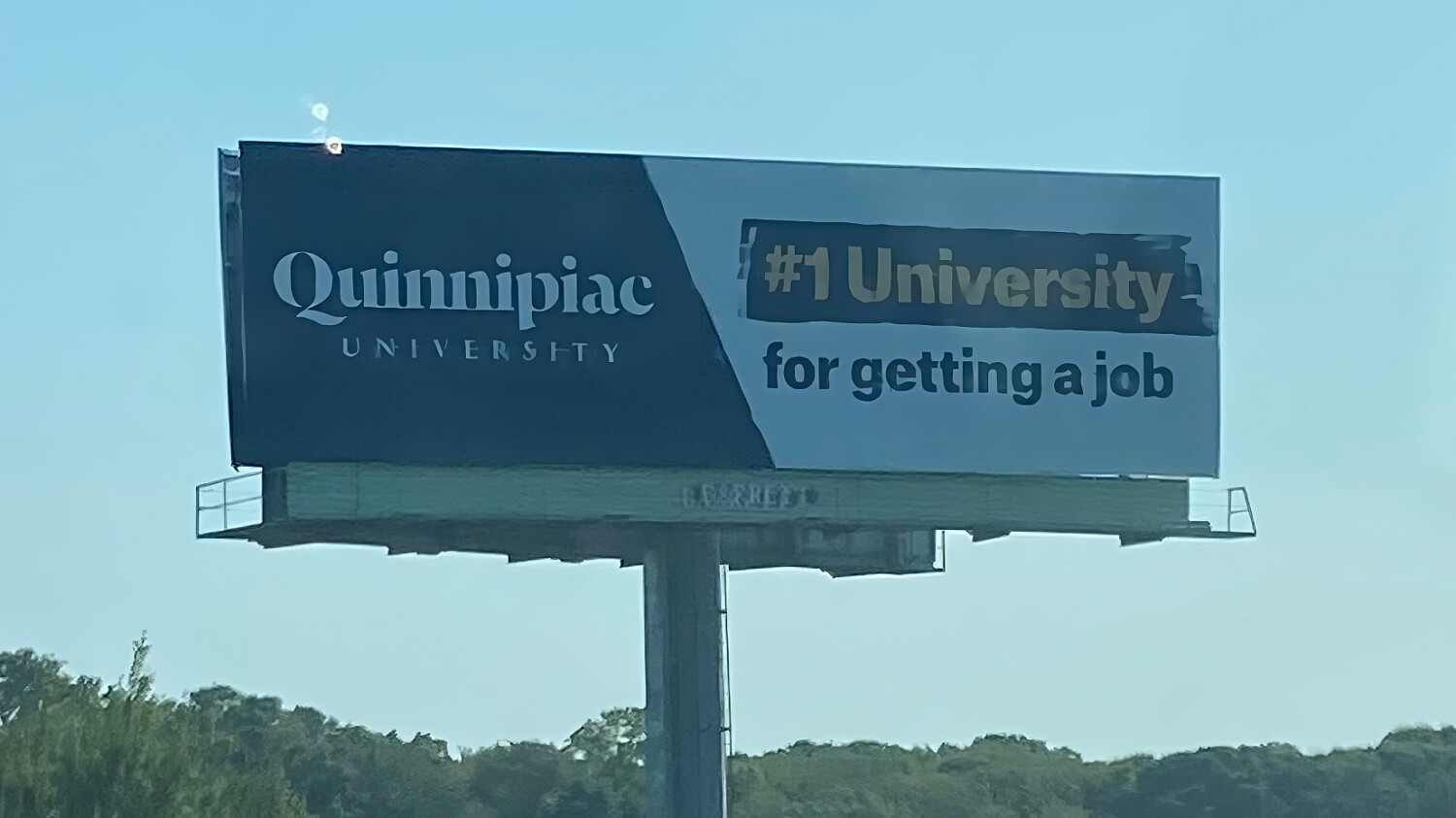
Simplilearn
What you should know about this digital skills training platform.
Motorists on I-95 North in Connecticut can look up and see this Quinnipiac University billboard touting the private school in Hamden, Connecticut, as the “#1 University for getting a job.”
In other words, Quinnipiac’s job placement rates are not just the best in the state, beating its hockey rival Yale University to the south and the University of Connecticut, the largest public university in the state, to the north, they are the best in the entire country.
It’s a bold claim but how does Quinnipiac back it up?
According to Quinnipiac’s website, “The career site Zippia.com ranked Quinnipiac for the fifth consecutive year as the best college in the nation for employment with an employment rate of 96.1% 10 years after graduation.” (Emphasis added.)
The 10-year mark isn’t noted in the billboard so consumers may think the “#1” statistic is based on employment soon after graduation. Which leaves us wondering: How does Quinnipiac fare, in terms of employment, months, or even one year, after graduation? And how is employment assessed? Does it matter if the graduate is not employed in their field of study?
TINA.org proposed these questions and others to Quinnipiac and Zippia. Zippia did not respond to our inquiry. Quinnipiac said in a statement:
Our billboard, positioned for quick impact, highlights Quinnipiac’s #1 ranking for job placement by Zippia.com for five consecutive years. We kept the message short and simple, trusting that interested viewers can easily find more details on our website.
On its website, Quinnipiac also touts that 97.4% of its graduates are employed or pursuing advanced education within six months after graduating but does not disclose the percentages for each group of graduates (as UConn does) and did not provide a breakdown in response to our inquiry. The school also did not answer a question about how employment is assessed.
The bottom line
According to the FTC:
If the disclosure of information is necessary to prevent an ad from being deceptive, the disclosure has to be clear and conspicuous.
In this case, consumers may be interested to know that Quinnipiac’s “#1 University for getting a job” claim is based on a 10-year timeframe and not, as the ad might suggest, immediate post-graduation employment.
Find more of our coverage on colleges’ job placement claims here.
Our Ad Alerts are not just about false and deceptive marketing issues, but may also be about ads that, although not necessarily deceptive, should be viewed with caution. Ad Alerts can also be about single issues and may not include a comprehensive list of all marketing issues relating to the brand discussed.
What you should know about this digital skills training platform.
Be wary of anyone who says there’s big money to be made as a life coach.
Is this life coach writing checks she can’t cash?


